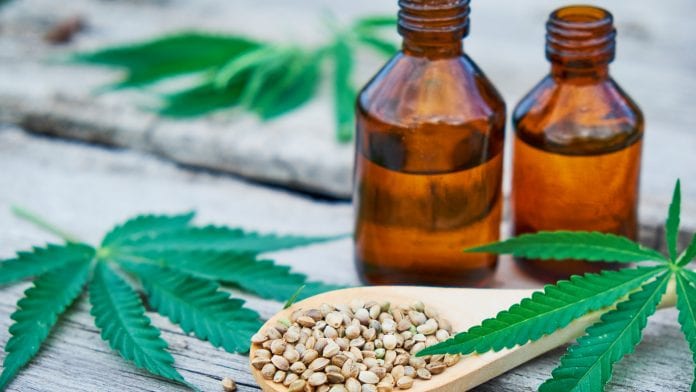The future of the European CBD market may be disrupted by a German court’s decision to classify CBD as either a prescription medicine or Novel Food.
The decision to recognise CBD as a Novel Food follows on from the direction of the European Commission (EC). The EC provided its view in January that CBD products, and products containing it, should be considered a Novel Food and shouldn’t be sold without further evaluation and authorisation.
The Cannabis Law team at London-based international law firm Mackrell. has said that this could have wide ramifications for the CBD industry.
CBD as a Novel Food
A Novel Food is defined as food that had not been consumed to a significant degree by humans in the EU before 15 May 1997, when the regulations were introduced.
The principles underpinning Novel Food rules in the European Union are, among other things, that any prospective foods must be safe for consumers and properly labelled, so as not to mislead consumers.
Where a Novel Food is intended to replace another food, it must ‘not differ in a way that the consumption of the Novel Food would be nutritionally disadvantageous for the consumer’.
Novel Foods require pre-market authorisation based on an evaluation in line with these principles.
As such, if an EU member state were to adopt the EC’s view (which they are generally expected to do), then it would not be lawful for CBD to be marketed in any such member state without authorisation.
CBD has, therefore, remained widely unregulated in the EU, with few member states enforcing the European Commission’s Novel Foods policy earlier this year, until now.
The German authorities have said that while hemp itself might not qualify as a Novel Food, food products with cannabinoids derived from hemp should be classified as Novel.
Elliott Rolfe, Head of the Cannabis Law team at Mackrell., said:” This is good news for German pharmaceutical companies but potentially very bad news for CBD companies and food businesses selling CBD containing consumables, who may now have to go through a lengthy marketing authorisation process before continuing to sell their products in Germany.
“There is a growing concern that other nations may feel pressured to follow suit as a result of this decision, which could have wider implications for the EU’s fast-growing CBD industry.”
UK Novel Food products
Elliott said that the Food Standards Authority in the UK has expressed a similar view on the Novel Food status of CBD, but it has not confirmed to what extent, if at all, it intends to actually enforce its interpretation of the law.
This means that the vast majority of CBD consumable products remain on sale in the UK, and this may continue to be the case regardless of the decision in Germany.
Rolfe added: “Germany was starting to be seen as a commercially favourable jurisdiction for the EU CBD wellness industry.
“Whether this remains the case is likely to mirror the UK situation, and depend on the appetite of the relevant German authorities for enforcing this ruling against non-compliant CBD and food businesses in Germany.”
The European Industrial Hemp Association and Cannabis Trades Association UK, for which Mackrell.’s Cannabis Law team have acted in this area, are working towards resolving the ambiguous legal position in the UK, utilising everything from transparent discussions with regulators, to appropriate legal channels.
Rolfe said: “This decision will be somewhat disappointing for most players in the European cannabis industry, but may have been inevitable considering the view adopted by the EC in January this year.
“Many businesses will find it strange and frustrating that these hemp extracts, that have an identical chemical profile to hemp-based foods that have been consumed for thousands of years and deemed non-novel, are being treated as novel by certain regulators and courts.
“The Novel Food regulations are intended to protect consumers, but in the case of CBD there is significant evidence that it isn’t harmful. Hopefully, further research in this area will help to support the existing evidence and allow for CBD to be marketed widely in the EU.”
Original Article: https://www.healtheuropa.eu/recognition-of-cbd-as-novel-food-could-have-industry-ramifications/95264/










